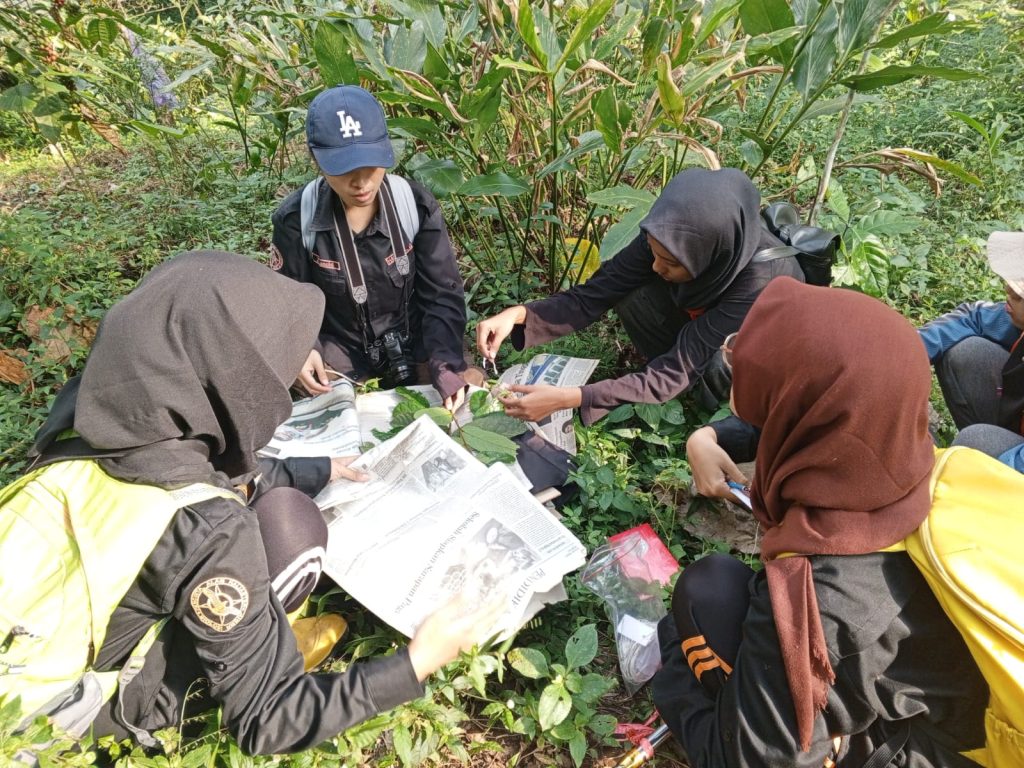The Haliaster Biology Nature Lovers Student Group (Mapala) of Diponegoro University once again demonstrated its commitment to environmental conservation through an exploration of plant diversity in the Mount Ungaran area. This activity focused on documenting Ficus spp., a plant group that plays an essential role in maintaining the balance of tropical forest ecosystems.
The exploration was carried out as part of the Diponegoro University World Class University Program, which encourages students to actively contribute to the implementation of the Sustainable Development Goals (SDGs). Through this program, students not only deepen their ecological knowledge and field research skills but also connect academic activities with global issues, particularly those related to biodiversity, climate change, and sustainable development.
The genus Ficus (family Moraceae) plays a vital role in sustaining the balance of tropical forest ecosystems. These trees produce fruit throughout the year, serving as a primary food source for many wildlife species, including frugivorous birds, bats, and primates. In addition, Ficus supports forest regeneration through seed dispersal by animals, helps maintain soil stability, and contributes to regulating the surrounding microclimate. Numerous international studies refer to Ficus as a “keystone species,” meaning that although it may not dominate in number, its presence has a significant impact on the structure and functioning of the entire ecosystem. Without Ficus, many ecological interactions could be disrupted, ultimately threatening the continuity of biodiversity.
During this exploration, Haliaster Biology UNDIP students carried out documentation and data collection on Ficus species found in the Mount Ungaran area. Fieldwork included morphological identification, recording of geographic coordinates, data collection, and the preparation of herbarium specimens. Preliminary results indicate a variety of Ficus species, including some rarely encountered species that were found in Mount Ungaran. These findings highlight the importance of Mount Ungaran as a crucial habitat supporting wildlife, particularly frugivorous birds.
Mount Ungaran was selected as the research site because it hosts a relatively well-preserved tropical forest ecosystem, despite facing pressures from human activities such as tourism, agriculture, and land-use change. These conditions make Mount Ungaran an ideal natural laboratory for understanding the relationship between plants, wildlife, and ecosystem dynamics.
The exploration of Ficus spp. also aligns with several SDG targets, including SDG 15 (Life on Land), which focuses on conserving terrestrial ecosystems and biodiversity; SDG 13 (Climate Action), which promotes climate change mitigation through forest conservation; and SDG 4 (Quality Education), which supports experiential learning through field-based research. Thus, this activity not only generates scientific data but also fosters awareness of the importance of real action for environmental sustainability.
Moreover, this initiative demonstrates that UNDIP students serve not only as academics but also as agents of change in environmental conservation. Through the World Class University Program, Diponegoro University continues to encourage students to contribute to global issues while strengthening the university’s commitment to supporting the SDGs.
The Ficus spp. exploration at Mount Ungaran, initiated by Mapala Haliaster Biology UNDIP, exemplifies how research, education, and hands-on action can work hand in hand to support environmental preservation.

